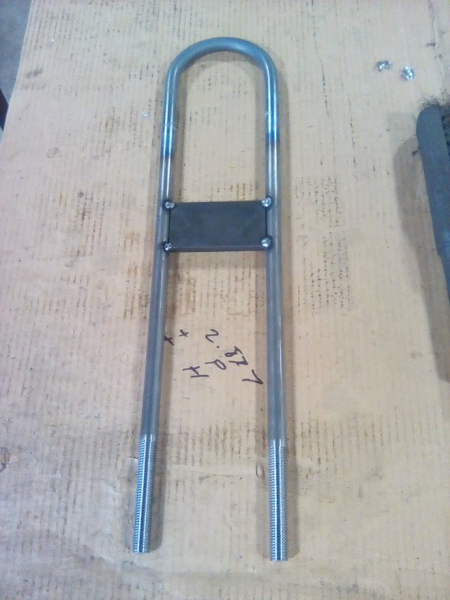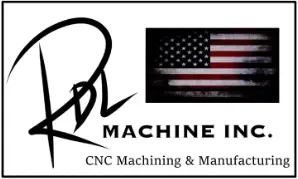Precision Mig and Tig Welding Services
Welding is the process of fusing two or more materials through heat or pressure. Two of the most common welding methods are Tungsten Inert Gas (TIG) welding, also known as Gas Tungsten Arc Welding (GTAW), and Metal Inert Gas (MIG) welding, also known as Gas Metal Arc Welding (GMAW). While TIG and MIG have similarities, each method has its benefits and strengths. Understanding each type of welding will help you determine which is more appropriate for your custom needs.
RDL Machine Welding Capabilities
At RDL Machine, we specialize in providing custom welding services tailored to your specific needs. Our skilled welders are proficient in both TIG and MIG welding. Understanding these techniques' differences, advantages, and applications can help you choose the correct welding method for your project.
While we primarily work with aluminum welding and stainless steel welding, we can work with other exotic alloys and metals. We strive to create high-quality metal components designed to meet your application requirements.
With over 20 years of experience, we’re confident that we can provide you with the right solution for your requirements. Contact us today for more information about custom applications and our welding capabilities for your project.
TIG Welding Versus MIG Welding
The critical difference between TIG and MIG welding is the electrode used during the welding process. MIG welding uses a consumable wire electrode, while TIG welding uses a non-consumable electrode (tungsten), meaning it does not melt during welding and requires a separate filler material.
The filler material for TIG and MIG welding will vary in composition and size based on the specific weld required.
TIG & MIG Welding Advantages
TIG and MIG each have their advantages and excel in different applications. Neither is “better” than the other, only more fitting depending on the application. Understanding your project needs will help determine which welding method is most appropriate.
Benefits of TIG Welding
TIG welding is a precise and versatile welding technique that utilizes a non-consumable tungsten electrode, an inert gas, and a separate filler material if required. There are several compelling advantages to using TIG welding.
Versatility
No filler material is required for TIG welding, making it suitable for various materials, including aluminum, stainless steel, copper, and titanium.
Precision
TIG welding allows precise control over the heat input, resulting in highly accurate and clean welds. It is particularly suitable for welding thin materials and intricate designs.
Aesthetics
Because TIG welding produces solid and high-quality welds with excellent bead appearance and minimal distortion, it is often preferred for critical applications where weld strength and aesthetics are essential.
Benefits of MIG Welding
MIG welding is a popular technique using a consumable wire electrode and an inert shielding gas. The advantages of MIG welding differ from those of TIG welding.
Speed
MIG welding is a faster process than TIG welding, making it suitable for projects requiring high productivity and efficiency.
Cost-Effective
Using a continuous wire electrode makes MIG welding more cost-effective, reducing downtime for electrode changes. Additionally, less prep work is necessary, speeding up the process and reducing labor costs.
Simple
The MIG welding process is more straightforward than TIG welding, allowing for more versatility and quicker productivity.
Custom Welding Service Applications
Because TIG welding and MIG welding have different advantages and strengths, they also apply to differing applications. These applications include the thickness of the material, production time, the delicacy of the work, and more.
TIG Welding Applications
TIG welding is best suited for applications involving:
- Thin material
- Non-ferrous metals
- Delicate work
- Smaller surface areas
- Professional appearances
MIG Welding Applications
MIG welding is best suited for applications involving:
- Thick material
- Swift production
- Simple projects
- Larger surface area
Industries Served
Welding services offered by RDL Machine service a wide variety of industries, and both TIG welding and MIG welding have their specialties. Some of these industries include but are not limited to:
TIG Welding Industries
- Aerospace: TIG welding is commonly used for joining aluminum and stainless steel components in aircraft and spacecraft manufacturing
- Medical: TIG welding is ideal for welding medical devices, equipment, and components made of stainless steel or other non-ferrous materials
- Automotive: TIG welding is used for precision welding in applications including exhaust systems, fuel tanks, and body parts
- Custom fabrication: TIG welding is often preferred for custom fabrication projects that require high-quality, visually appealing welds
- Automotive: MIG welding is commonly employed for welding automotive frames, chassis, exhaust systems, and other large components
- Construction: MIG welding is suitable for welding structural components, beams, and other metal parts
- Fabrication shops: MIG welding helps assemble metals in fabrication shops
MIG Welding Industries
- Automotive: MIG welding is commonly employed for welding automotive frames, chassis, exhaust systems, and other large components
- Construction: MIG welding is suitable for welding structural components, beams, and other metal parts
- Fabrication shops: MIG welding helps assemble metals in fabrication shops
Discuss Your Welding Services Needs With Us Today
Interested in working with RDL Machine’s innovative experts? As an industry-leading machine shop of over 20 years, RDL Machine has the experience needed to provide quality and cost-effective machining for virtually any requirement. Request a quote or contact a representative today and let us work with you to find a solution for your custom welding needs.




